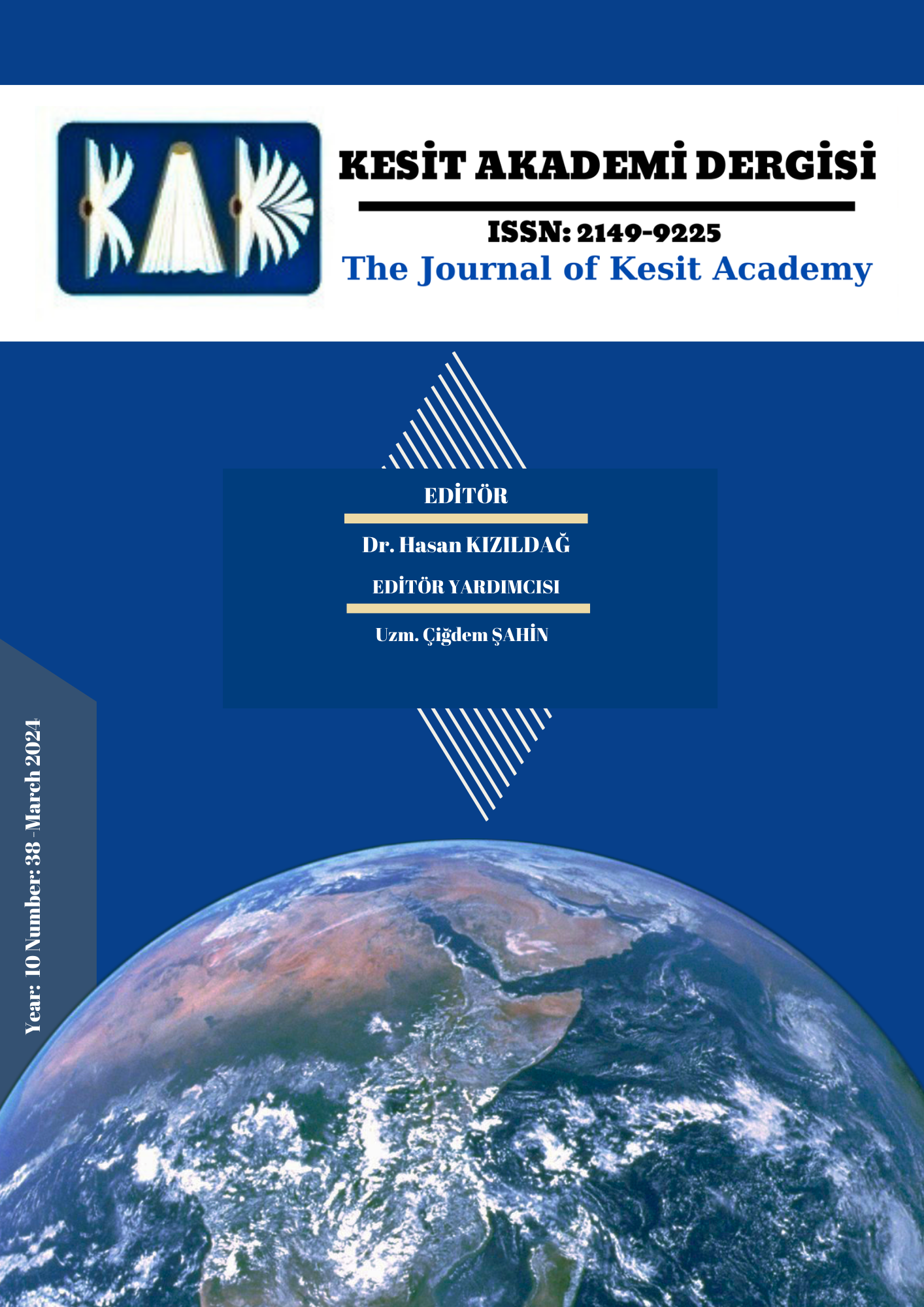Author :
Abstract
Halk bilimi, içerisinde barındırdığı açık ve örtük işlevlerle birlikte insanoğlunun varoluşundan itibaren onun yaşamının bir parçasıdır. İnsanoğlunun hayatını idame ettirmek adına gerçekleştirdiği eylem, sanat, meslek vb. fizyolojik ve psikolojik unsurlardan meydana gelen ürünler Halk biliminin öğeleridir. Halk bilimi, içerisinde barındırdığı açık ve örtük işlevlerle birlikte yaşamının bir parçası olma özelliğini daima korumuştur. İnsanlığın ilk dönemlerinde yaşamı kolaylaştıran bir araç olarak karşımıza çıkmakta olan bıçak, zaman içerisinde gelişen ve değişen dünya şartlarıyla birlikte değişime uğramıştır. Seri üretimin beraberinde tek tipleşen bıçak tipleri geleneksel yöntemin aktarılmasında kopukluk söz konusu olmuştur. Bunun beraberinde sanayi merkezli üretimin daha ekonomik ve daha kısa sürede üretilmesi gibi nedenlere bağlı olarak da geleneksel bıçak üretiminde azalmalar meydana gelmiştir. Kökenlerini Türklerde önemli madenlerden biri olan demirden alan bıçak, çeşitli teknik ve yöntemlerle icra edilmektedir. Türk kültüründe kadim bir değere sahip olan demir madenine paralel olarak gelişim gösteren bıçak, başta avcılık ve besin ihtiyacının giderilmesi olmak üzere toplumun tecrübe ettiği olaylar karşısında ortaya koyduğu çeşitli uygulama ve ritüelleri de bünyesinde barındıran bir halk bilimi unsuru olmuştur.
Keywords
Abstract
Folklore, with its explicit and implicit functions, has been a part of the life of human beings since their existence. The products consisting of physiological and psychological elements such as action, art, profession, etc. that human beings perform in order to sustain their lives are the elements of folklore. Folklore has always maintained its feature of being a part of life with the explicit and implicit functions it contains. The knife, which appeared as a tool that facilitated life in the early periods of humanity, has undergone changes with the developing and changing world conditions over time. With mass production, there has been a disconnect in the transfer of the traditional method of knife types that have become uniform. In addition to this, there has been a decrease in the production of traditional knives due to reasons such as the production of industry-centered production more economically and in a shorter time. The knife, which takes its origins from iron, one of the important metals in Turks, is performed with various techniques and methods. The knife, which has developed in parallel with the iron mine, which has an ancient value in Turkish culture, has been an element of folklore that includes various practices and rituals that the society has put forward in the face of the events it has experienced, especially hunting and meeting the need for food.





